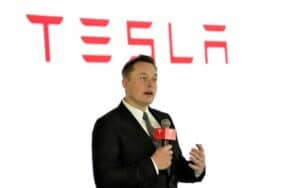ALTHOUGH the Tinubu administration’s midterm is five months away, President Bola Ahmed Tinubu can proudly reflect on his administration’s journey over the last 19 months. After initial turbulence, the government concluded 2024 stronger than 2023, as many policies began yielding significant results that even the most ardent detractors could not ignore. Under President Tinubu’s leadership, NNPC Limited has fixed two of the four state-owned oil refineries, achieving what many had cynically regarded as improbable. The administration’s efforts have led to a rise in crude oil production, with an expected inflow of more dollars into the Federation Account and remarkable accretion into the foreign reserves. The government remains focused on gas development, attracting investors’ interest. Dollars have flowed into the country through fresh investments in several sectors. The administration created an innovative Ministry of Livestock Development to unlock the previously untapped potential in animal husbandry, steering the country from tragedy to opportunity.
The lucrative stock market ended the year on a high note, breaking its initial record under the Tinubu presidency. The All Share Index hit over 103,000 from 55,738 on May 30 2023. Market capitalisation is over N63 Trillion. In the last 19 months, local and foreign investors have invested unprecedented amounts in the market. The government is also expanding the national road infrastructure stock by building legacy superhighways from Lagos to Calabar and Sokoto to Badagry. The administration’s successful euro bond issuance of $2.2 billion notably attracted over $9 billion in interest, while a domestic dollar bond of $500 million was oversubscribed. These developments indicate confidence in the Nigerian economy. Revenue generation has increased, and all tiers of government received more funds to spend on the welfare of Nigerians, including the 774 local councils that recently won financial autonomy.
November and December 2024 proved especially remarkable. Shell and Partners announced an estimated $5 billion investment in the Bonga North oil field. Brazil’s JSB, one of the world’s leading integrated livestock companies, announced a $2.5 billion investment in livestock development in Nigeria, with some officials flying into the country to actualise the pledge. Fuel prices began to decrease amid competition from local refineries, supporting President Tinubu’s belief that market forces would lower the prices of consumer goods to benefit Nigerians. For the first time in our history, the proposed 2025 budget included no provision for a fuel subsidy. There was no scarcity, too. Instead, the government has proposed more funds for capital expenditure, health, education, and national security in the record-breaking N49.7 trillion budget. Critics remain silent as positive indicators continue to emerge. Not an accidental president, Tinubu took office on May 29, 2023, with a clear vision for Nigeria: to renew hope through a programme of action to foster economic diversification, stability, and prosperity and build a trillion-dollar economy.
Read Also: Oyebanji rallies support for Tinubu’s govt
He has implemented many of his campaign promises and those in his Renewed Hope Agenda. Although unintended consequences have emerged, temporarily affecting the well-being of all Nigerians, the administration is working hard to ameliorate the burden on the masses. President Tinubu consistently implements reforms, daring to confront headlong the country’s many hydra-headed socio-economic problems and committing to the transformative change the country urgently requires. Posterity will be kind to him and remember his era as a reform-minded leader. Positive signs continue to emerge: apart from declining fuel prices, the country recorded foreign trade surpluses for three consecutive quarters, foreign reserves are rising, and the Naira is gaining strength against the US dollar. One notable achievement of President Tinubu’s tenure is fulfilling his promise to implement a student loan programme. This initiative financially supports students, ensuring that higher education is accessible to all, regardless of economic background. Investing in the education sector, the administration aims to empower the youth and equip them with the skills needed for Nigeria’s future growth.
In addition to the student loan scheme, President Tinubu has advanced the consumer credit initiative, another campaign promise, and plans to deepen it in the first quarter of 2025. Promoting access to credit is part of the administration’s broader strategy to stimulate consumption, drive entrepreneurship, and boost the domestic economy. On his first day in office, President Tinubu decisively eliminated the fuel subsidy, which had long burdened Nigeria’s economy. While the initial removal triggered higher fuel prices, the market is now experiencing a downward trend. This development illustrates the administration’s commitment to market-driven pricing and economic efficiency, which should benefit public investment in critical sectors in the long term.
The administration introduced electric vehicles and Compressed Natural Gas (CNG) as alternatives to reduce Nigerian dependency on petrol. In the past 12 months, more Nigerians have converted their vehicles to CNG, spurred by government and private sector investment. A new industry is gradually unfolding, creating new jobs along the value chain whilst promoting a cleaner environment. Another bold economic reform was unifying Nigeria’s multiple exchange rates, which previously caused economic distortion, criminal arbitrage, and speculation. Following an initial depreciation, the Naira has stabilised against the US dollar, reflecting increased investor confidence and a more transparent foreign exchange policy. Investment inflows further testify to the positive impact of President Tinubu’s policies. The oil, gas, and solid minerals industries are experiencing renewed interest and investment. These sectors are crucial for enhancing Nigeria’s export capacity and creating jobs, thus driving economic diversification and growth. Moreover, Nigeria’s foreign reserves have shown a promising increase, bolstered by improved trade balances and strategic monetary and fiscal management.
Looking ahead to 2025, President Tinubu plans to introduce what could be his most transformative reform yet — tax restructuring. With four bills before the National Assembly, the proposed reform seeks to streamline tax systems and administration in Nigeria to promote better investment and a friendly business climate. Under the proposed tax reform, low-income earners under the minimum wage bracket and small businesses within a certain threshold will be exempt from paying taxes. The administration’s mantra is that taxes should focus on prosperity, not people’s or businesses’ hardships. The government focuses on expanding the tax net, making taxes less burdensome to taxpayers, and getting wealthy people to pay their fair share. This progressive approach reflects the administration’s commitment to equity and fiscal sustainability. However, the road to reform does not come without challenges. President Tinubu faces resistance, particularly from politicians and tax evaders who have expressed concerns about the implications of the changes that will come with reforming our tax systems. President Tinubu, who is not oblivious to the pushback, has said he is willing to make necessary adjustments, as democracy is about negotiations, give and take.
President Tinubu’s administration has demonstrated firm determination over the last 19 months to succeed against all odds and reposition the economy for better performance.
While challenges remain, especially with food inflation, President Tinubu’s leadership has shown a proactive and committed approach to addressing these issues. The administration’s trajectory suggests a path toward Nigeria’s economic stability and social development. Though it is not midterm for the administration, realising a prosperous and equitable country looks promising and achievable. The Tinubu administration is undoubtedly steadfast in its resolve to improve Nigeria, and it’s on course to achieve all the campaign promises to the people.



